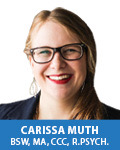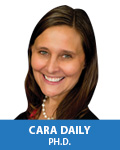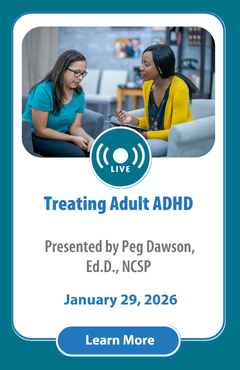Description
LIVE STREAM: December 3 – 5, 2025 from 8:30am – 4:00pm (Winnipeg, MB) Please adjust your start time according to your specific time zone.
ON-DEMAND: Recorded footage & course content (certificate, videos, quiz) will be available until January 5, 2025. Please allow 3 – 10 business days for footage to be processed. Extensions cannot be granted under any circumstances.
December 3, 2025 | Day One
Fostering Social-Emotional Learning Skills for Academic Success Using Brain-Behavioural Relationships
PRESENTED BY Steven G. Feifer, D.Ed., ABSNP
This workshop will examine the impact of mental health conditions on students’ academic performance and social development, offering practical strategies schools can use to promote emotional wellness. Through the lens of brain-behavioural relationships, this workshop will explore how schools can create environments that support not only academic achievement but also emotional regulation, social skills, and overall mental well-being. Factors such as poverty, trauma, childhood abuse, parental neglect, and the lasting effects of the pandemic can disrupt key brain processes related to learning and emotional behavior, resulting in challenges for students both academically and socially.
The focus of this workshop is on early intervention, effective assessment, and evidence-based classroom strategies. We will equip educators, school counselors, and mental health professionals with the tools they need to support emotional wellness in students, helping them overcome emotional challenges and thrive academically. Participants will learn how to assess emotional wellness, implement social-emotional learning initiatives, and create nurturing, resilient school environments that foster positive outcomes for all students.
Reading and Written Language Disorders
This 3-hour afternoon workshop will explore reading and written language disorders through a brain-based educational lens, offering participants targeted strategies for supporting students with learning challenges. The workshop will be divided into two key segments: reading disorders in the first half and written language disorders in the second, each designed to equip educators and clinicians with the practical tools necessary for effective intervention.
Understanding and Addressing Reading Disorders
The first part of the workshop will focus on differentiating dyslexia from other reading disorders, with a special emphasis on classifying developmental reading disorders into four distinct subtypes. Participants will learn how to identify each subtype and match it with evidence-based interventions to target the specific cognitive challenges associated with it. We will delve into essential cognitive constructs involved in the reading process, including:
- Phonemic awareness
- Phonological processing
- Orthographic processing
- Working memory
- Executive functioning
Additionally, the Feifer Assessment of Reading (FAR) will be introduced as a diagnostic tool to assess reading abilities, helping to inform intervention planning and guide targeted support for students. Participants will gain hands-on strategies to assess reading difficulties and design appropriate interventions based on individual student needs.
Exploring Writing Disorders and Intervention Strategies
The second half of the workshop will examine writing disorders, with a focus on how “frontal lobe” processes—such as attention, working memory, and executive functioning—influence each subtype of writing difficulty. We will explore three distinct subtypes of writing disorders and discuss the neurological basis for each. Participants will also review five essential steps for effective written language instruction, providing practical strategies for supporting students with writing challenges, including dysgraphia.
The workshop will introduce the Feifer Assessment of Writing (FAW), a tool designed to diagnose writing disorders and guide intervention planning. Participants will explore how to use the FAW and other diagnostic instruments to identify students with written language difficulties, ensuring they receive the appropriate interventions.
December 4, 2025 | Day Two
Practical Solutions to Address Anxiety Disorders with Children and Adolescents
PRESENTED BY Carissa Muth, Psy.D., CCC, R.Psych
As high as 20% of children in Canada will experience an anxiety disorder before reaching adulthood. For many of these children, symptoms of anxiety will impede their life and development to a degree that will create impairments into adulthood. Developmental vulnerabilities place children and adolescents at unique risk and also in need of specialized knowledge regarding the assessment and treatment of their anxiety symptoms. In this workshop, Dr. Muth will ground the assessment and treatment of anxiety for children and adolescent in a neurological understanding of human development. Presenting developmentally appropriate CBT and play therapy interventions, Dr. Muth will provide practical tools for working with children and adolescents with anxiety. Participants will walk away with the ability to identify anxiety symptoms and apply immediate interventions to address psychological symptoms and reduce the likelihood of continuation of issues into adulthood.
Why Attend?:
- Practical Application: CBT is widely evidenced as the most effective method for treatment for anxiety for children and adolescents yet commonly misunderstood in application. This workshop will provide practical guidance for applying developmentally appropriate interventions for the cognitive (e.g. thought reframing) behavioural (e.g. imaginal and in vivo exposure) and physiological (e.g. addressing autonomic arousal) aspects of CBT.
- Expanded Toolbox: While protocoled therapies are often more widely studied and, as such, evidenced, alternative methods have also demonstrated efficacy in addressing anxiety in children. This workshop will present an overview and easy to apply play therapy interventions to equip participants to utilize a myriad of interventions to meet a variety of client needs.
Executive Functioning Skills for Children and Adolescences
Planning, organizing, and emotionally regulating all are executive functioning that, when impaired, can significantly impact activities of daily living. In childhood this can range in presentation from the ability to complete homework, to the ability to refrain from anger outbursts. While executive functioning never fully develops until young adulthood, certain children are at risk for lifetime impairments. Risk factors include trauma, low socioeconomic status, stress or neurodevelopmental disorders such as ADHD or ASD. In this workshop, Dr. Muth will present tools that can be implemented in the therapeutic setting and have been evidenced to have a lasting impact on children with low executive functioning. Many skills have been suggested by professionals, such as exercise, computer games, music, but only a few have been found to have a lasting impact once the intervention ceases. For children with low executive functioning, particular nontypically developing children (including children with neurodevelopmental disorders or behavior problems), improving skills in these areas can significantly improve their ability to flourish throughout their life.
Why Attend?:
- Adopt Effective Interventions: Research has indicated that while many interventions temporarily improve executive functioning skills, not all techniques have lasting impact or allow children to apply skills to a variety of situations. This workshop will provide participants with practical interventions that have been evidenced to have lasting impacts.
- Increase Toolbox: Given the vast range of risk factors for impairment in executive functioning development, many children attending therapy would benefit from interventions, whether or not they have a neurodevelopmental disorder. As such, developing skills to address executive functioning deficits will be helpful for anyone working with
December 5, 2025 | Day Three
Evidence-Based Strategies for Addressing Challenges in Autism Spectrum Disorder and Social Communication Disorder
PRESENTED BY Cara Daily, Ph.D.
This one-day workshop will focus on evidence-based interventions and practical strategies for managing challenging behaviors and enhancing social communication in children, adolescents, and young adults with Autism Spectrum Disorder (ASD) and Social Communication Disorder (SCD). Building on the foundational knowledge from Part 1, this session will focus on practical, hands-on tools to support behavior change, teach social communication skills, and create supportive environments in home, school, and community settings.
Dr. Cara Marker Daily will explore behavioral strategies like Applied Behavior Analysis (ABA), as well as Cognitive Behavioral Therapy (CBT) for promoting self-regulation and reducing anxiety. Participants will learn how to integrate social communication interventions such as PECS, turn-taking, and social skills training into their practices.
Additionally, participants will focus on modifying environmental factors (both home and classroom settings) to support the individual’s growth and behavior management. Emphasis will be placed on creating environments that promote social skills development and reduce triggers for challenging behaviors. Special attention will also be given to preparing children and young adults with ASD and SCD for independent living and adulthood, addressing topics like sex education, work readiness, and transitioning to the workforce.









